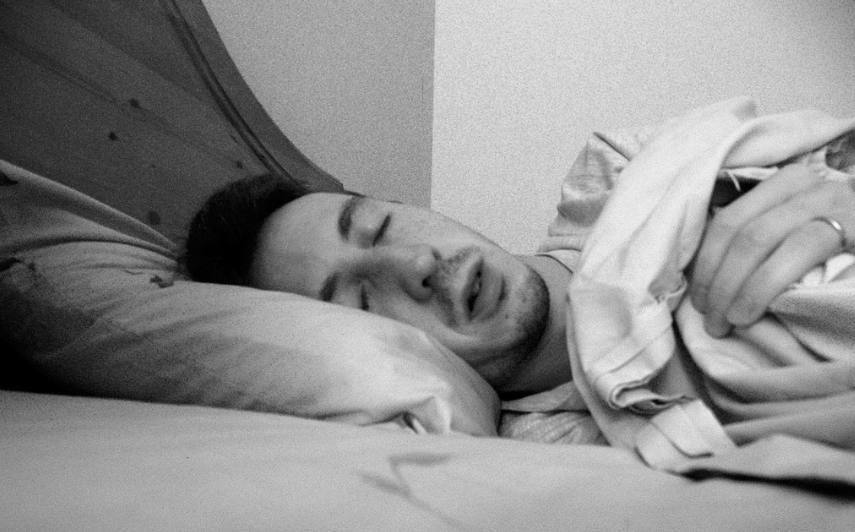

Sleep disorders are one of the worst things you can ever have. Whether it is sleep apnea, hypopnea, or insomnia, they all lead to health issues. The worst part is that there are many reasons if you suddenly have any of these disorders.
If you stop breathing while sleeping or feel like there's interrupted breathing, it is most likely sleep apnea. You can visit your sleep specialist to get a better diagnosis.
In this article, we will shed light on the causes of sleep apnea. We will try to cover each type of sleep apnea to ensure that you receive complete information.
Obstructive sleep apnea, also known as OSA, is the most common sleep disorder in people. It is when something either blocks your airways or stops your breathing. The name suggests that there has to be something to actually be an obstacle. It can be throat muscles, tissues, tongue, or nasal congestion.
Primarily, excessive weight is the leading cause of obstructive sleep apnea OSA, but other factors can be:
Smoking: Sleep apnea is all about breathing and oxygen levels. When you smoke, you reduce your lung capacity and also throat's capacity. There can easily be inflammation or narrowing of airways that cause you the problem.
Alcohol And Substances: Do you feel tired after drinking alcohol? It's due to the relaxing properties that can even relax your throat muscles. As a result, your airways can collapse and get blocked. The same applies to any sedatives and medicines that make you drowsy or sleepy.
Aging: Old age is also one of the reasons behind developing obstructive sleep apnea. That's mainly because the muscles and tissues become weaker. So, your body has trouble keeping the airways open.
Genetics: If there is a family history of obstructive sleep apnea, it becomes highly likely that you may also acquire the disease. Moreover, if your family members snore loudly, it can later grow to be obstructive sleep apnea.
Central Sleep Apnea is related to the brain, the neurological network that allows your respiratory system, especially signals the muscles to breathe during sleep. It is less common, but if you ever feel like there's a pause in your breathing while sleeping, then it could be CSA. Central sleep apnea syndromes appear mainly due to other health complications:
Heart Conditions: Heart attack or heart failure can fill the lungs with fluid. Thus, it becomes more challenging for you to breathe. If you have an unhealthy heart, this becomes a common occurrence.
Stroke: A stroke almost always damages some part of the brain. As we are never sure which part, it can even damage the part that controls breathing. This can develop central sleep apnea CSA.
Brain Tumors: More specifically, tumors in the brainstem can easily pose problems for your brain to signal the body to breathe. This can lead to CSA, as well.
Opioid Abuse: If you use painkillers, especially opioids, you are running the risk of respiratory issues, which can lead to central sleep apnea.
You could develop sleep apnea which is the combination of the two: CSA and OSA. It is one of the worst conditions and is also known as treatment-emergent central sleep apnea. This condition can surface due to any of the above-given reasons.
There are many other factors that can develop obstructive sleep apnea, Central sleep apnea, or the mix. Here is a quick overview:
Males have a higher risk of developing sleep apnea than females.
Sleep apnea depends on age age. Most people with sleep apnea are 60+
Sleep apnea occurs commonly in obese individuals. Doctors also recommend losing weight to treat sleep apnea.
Your sleep environment also plays a role. If you have reduced sleep quality or often get restless sleep, it can affect breathing. Hence, you can develop or make sleep apnea worse.
There are a few symptoms you can look for. If you have these, then get your sleep apnea diagnosed as quickly as possible:
Loud snoring.
Breathing interruptions while sleeping.
You gasp or feel choked during sleep.
Excessive daytime sleepiness or fatigue is also a common reason.
Morning headaches due to improper blood oxygen levels because of sleep apnea is also common.
If left untreated, sleep apnea patients often have an increased risk of cardiovascular disease. You could face blood inheritssure issues, strokes, diabetes, or deinheritssion. Serious complications can lead to not just heart disease but nonalcoholic fatty liver disease, trouble concentrating and more.
Treating sleep apnea includes continuous positive airway inheritssure (CPAP), sleep study by a specialist, healthy sleep cycles, lifestyle changes, and maintaining a healthy weight.
Leave a comment